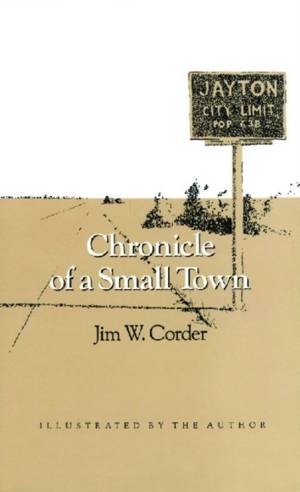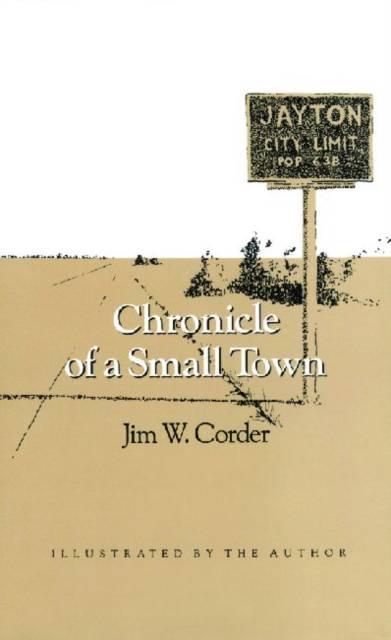
- Retrait gratuit dans votre magasin Club
- 7.000.000 titres dans notre catalogue
- Payer en toute sécurité
- Toujours un magasin près de chez vous
- Retrait gratuit dans votre magasin Club
- 7.000.0000 titres dans notre catalogue
- Payer en toute sécurité
- Toujours un magasin près de chez vous
29,95 €
+ 59 points
Format
Description
"I want to hear about such folks as my father and how he knows how to make cement, not by recipe, but by something in his bones. I want to hear how my grandfather learned to plow a straight furrow and why even older men always called him Mister. I want to know all of the reasons why, those years ago, my mother cried when the tomatoes in her garden twisted and died." Trying to find out such things, Jim Corder leads us through the ravines of the Croton Breaks, around to the back side of the Double Mountains, and through the streets of Jayton and Spur, as they are and as they used to be. He takes us right up to gaze at the Big Rock Candy Mountain, which, however, he can't tell us how to find since the day in 1937 when the State Highway Department made it into gravel. Fort Concho and Fort Phantom Hill, outhouses and feed mills, Col. Ranald Mackenzie and a lone Comanche brave, high school athletes and desperately lonely teachers, all come under his scrutiny and are hauntingly considered for their stories, their limitations, and the sense of place they afford. Nostalgia, wonderment, and a healthy and imaginative provincialism color the pages of this book, which is well illustrated with the author's own pen-and-ink sketches of the places and things he remembers. The vibrantly concrete details of daily existence in a bygone time in a remote and desolate area of Texas are startlingly juxtaposed with philosophical musings about the limitations all of us face in comprehending even that little bit of life we live. "Can poetry, or water, be found in West Texas?" Corder asks at one point. His answer-if such it be-makes it worth our getting lost with him in this journey of the heart and mind. JIM W. CORDER is a professor of English at Texas Christian University and the author of many articles and several books, including Lost in West Texas.
Spécifications
Parties prenantes
- Auteur(s) :
- Editeur:
Contenu
- Nombre de pages :
- 175
- Langue:
- Anglais
- Collection :
Caractéristiques
- EAN:
- 9781603449885
- Date de parution :
- 01-02-12
- Format:
- Livre broché
- Format numérique:
- Trade paperback (VS)
- Dimensions :
- 140 mm x 216 mm
- Poids :
- 240 g

Les avis
Nous publions uniquement les avis qui respectent les conditions requises. Consultez nos conditions pour les avis.






